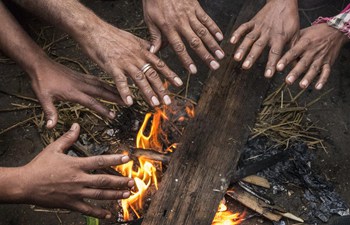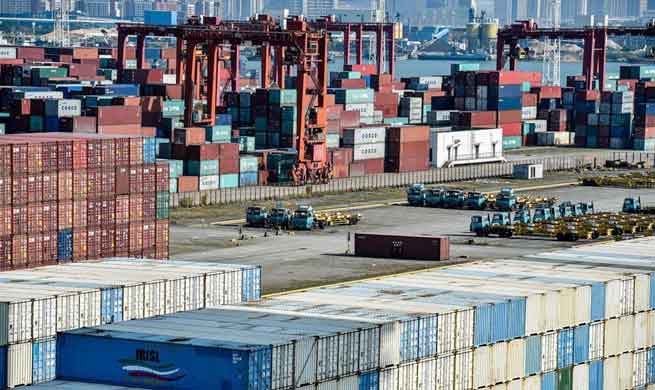by Jamila Najmuddin
COLOMBO, Jan. 4 (Xinhua) -- Sri Lanka's leading wildlife experts and environmentalists on Thursday welcomed China's decision to ban ivory sales, saying all countries should follow China's example in order to save tuskers globally.
Leading Environmentalist and a member of the Wildlife and Nature Protection Society of Sri Lanka, Vidya Abhayagunawardena told Xinhua that China's decision would safeguard elephants across the world.
"We invite other countries to follow China's example. Especially the East Asian countries as they believe that ivory brings prosperity," Abhayagunawardena said.
"This decision will affect Sri Lanka as our country is used as a hub by international wildlife traders. A ban in China will strongly be an advantage for us all," Abhayagunawardena added.
In January last year, Sri Lanka became the first country in South Asia to publicly destroy 356 blood ivories worth millions of U.S. dollars, which was seized in a ship at the Colombo Port in 2012.
Abhayagunawardena, who was in the forefront of organizing the event to burn the blood ivory, said the consignment had been detected by the Customs and was en-route to Dubai.
He said through the gesture, Sri Lanka has sent a strong message that it would not tolerate the killing of elephants.
Presently out of the total elephant population in Sri Lanka, only 5 percent are tuskers and these tuskers were under continuous threat from poachers and smugglers.
"December was an alarming month as there were five tuskers which were reportedly killed. There may have been some unreported cases too," Abhayagunawardena said.
A 23-year-old animal lover, Savindri Perera told Xinhua that China's decision to ban the sale of ivory was welcomed not only in the island country but also across the world.
She said China was one of the most powerful countries in the world and this sent a strong message to other countries that the killing of elephants will not be tolerated.
China closed its doors to the ivory trade on Dec. 31 when it declared it illegal to process or sell ivory and its products in China.
The current partial ban in China has already led to an 80 percent decline in seizures of ivory entering China, as well as a 65 percent decline in raw ivory prices.
Some 35,000 African elephants are killed annually to feed this illegal trade, while in the past decade alone, 75 percent of African elephants were slaughtered. Environmentalists have voiced grave concern that at this rate, elephants could face extinction by 2025.

















